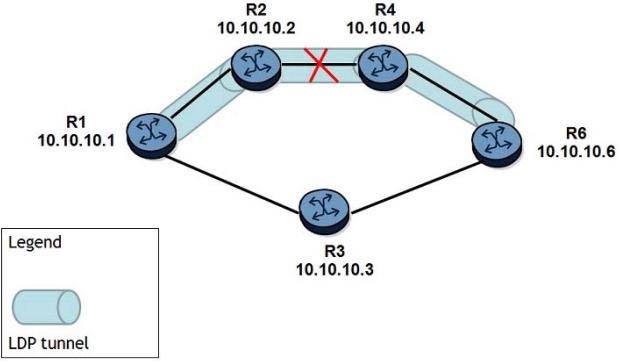Click on the exhibit.

An LDP tunnel is established on router R1 towards router R6. The link between routers R2 and R4 goes down. What will happen to the MPLS data traffic to router
R6 IMMEDIATELY after the link goes down?
Click on the exhibit.

An LDP tunnel is established on router R1 towards router R6. The link between routers R2 and R4 goes down. What will happen to the MPLS data traffic to router
R6 IMMEDIATELY after the link goes down?
MPLS data traffic will be discarded until the IGP finds a new next-hop to router R3. LDP tunnels do not inherently benefit from a standby secondary path feature, which is typically associated with RSVP-TE. Instead, LDP is intrinsically tied to the IGP for path determination. When the link between R2 and R4 goes down, the IGP needs time to converge and find a new path through router R3. Until this convergence completes, MPLS data traffic destined for R6 will be discarded.
The right answer is A. The secondary standby feature is only for RSVP, so LDP tunnels cannot be benefited with it. LDP is tightly dependent from IGP, so, until then igp protocol does not find another next-hop for the destination and establish a new path, the traffic will be discarted.